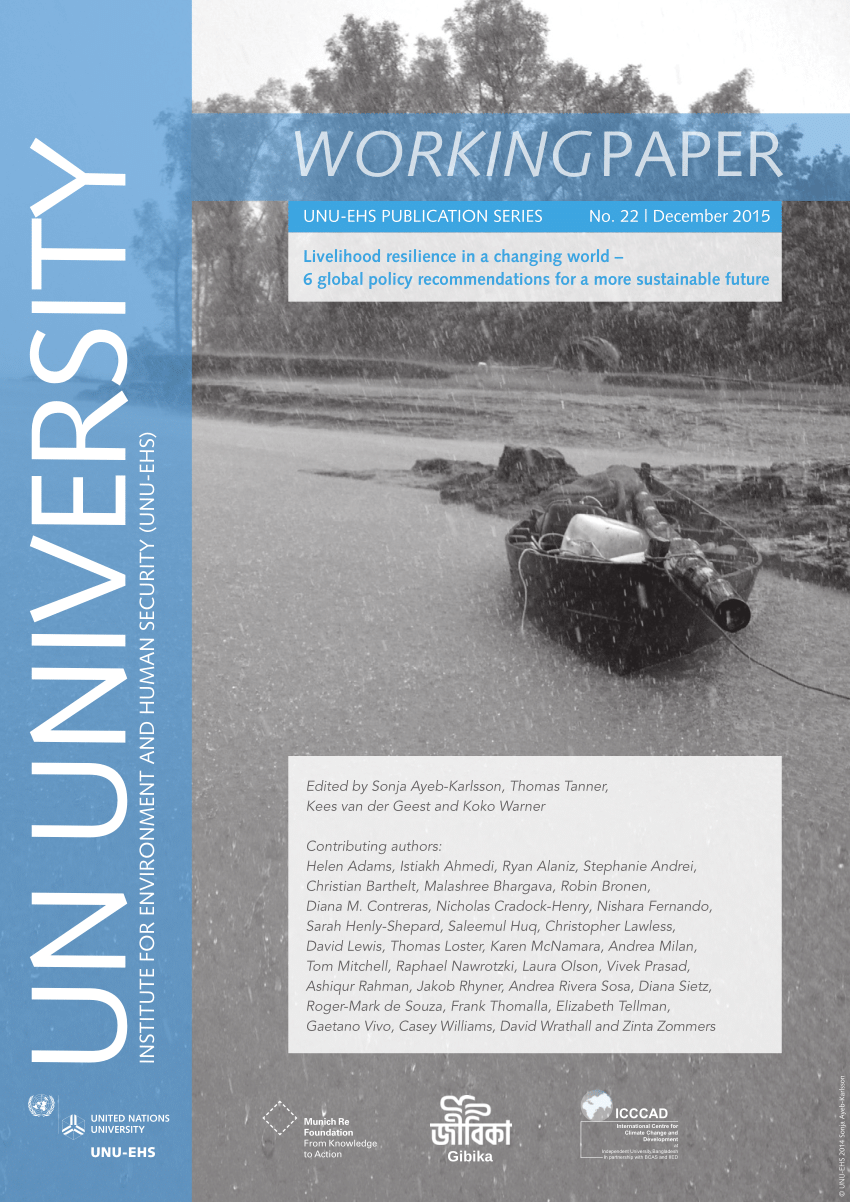🌿 COP 30 - Building a Greener Tomorrow
The 30th UN Climate Change Conference (COP 30) is taking place in Belém, Brazil. Stay informed about global climate actions, negotiations, and live sessions from 10 – 21 November 2025.
Get Updates
Policy Working Paper: Livelihood resilience in a changing world: 6 global policy recommendations for a more sustainable future

Files
Date
December, 2015Author(s)
- Helen Adams
- Istiakh Ahmed
- Ryan Alaniz
- Stephanie Andre
- Christian Barthelt
- Malashree Bhargava
- Robin Bronenvi
- Diana M. Contreras
- Nicholas Cradock-Henry
- Nishara Fer
Abstract
In 2013, the United Nations University Institute for Environment and Human Security (UNU-EHS), the International Centre for Climate Change and Development (ICCCAD) and Munich Re Foundation (MRF) began the five-year partnership research-to-action project Gibika (“livelihood” in Bengali) focused on livelihood resilience in Bangladesh. The Gibika project explores local research-based solutions and their transferability to other geographical and socio-economic contexts. As an important complement to the locally based Gibika project, the project consortium is organizing the annual Resilience Academy, which aims to foster a broader and more overarching discussion of livelihood development. The Resilience Academy emphasizes the global importance of understanding and supporting livelihood resilience, especially among the most vulnerable population groups. There are four important international processes that mark crucial milestones in 2015: The 3rd World Disaster Risk Reduction Conference on the Post Hyogo Framework in March 2015 in Sendai, Japan, the Third International Conference on Financing for Development in Addis Ababa, Ethiopia, the formulation of the Sustainable Development Goals, and the 21st Conference of the Parties to the United Nations Framework Convention on Climate Change (UNFCCC COP 21) in December 2015 in Paris.
Citation
Edited by: Sonja Ayeb-Karlssoni, Thomas Tanner, Kees van der Geesti and Koko Warner
Publisher
UNU-EHS PUBLICATION
Rights Holder
UN University
URI
https://knowledgehub.pksf.org.bd/collections/RWRkV2FiSEFBVWFmOW8vRDVlYW4wZz09
